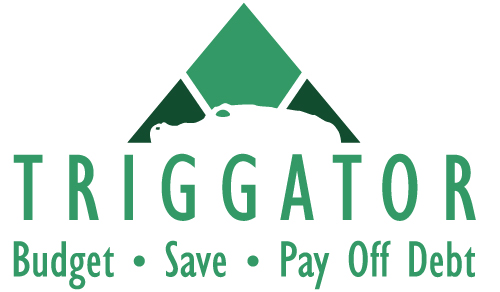If you have a mortgage and you are ready to pay it off, here are some steps you can take to pay it off early.
The good news is, there is an easy way to pay off your mortgage early without refinancing and without changing too much to your budget.
More...
** There are some stipulations to using this technique. Check with your lender to make sure this is a valid option for your loan.
Pay Bi-Weekly
The key to this payoff method is splitting your mortgage in half and paying every other week instead of monthly.
That’s it … the secret in a nutshell.
If you are interested in this method, read the rest of this article and talk to your mortgage lender to see if they can help make arrangements for you.
Get Ahead on Your Payment
It is important to remember that you will be getting ahead on your payments. In the beginning you’ll need to consider the availability of your money to make an extra payment.
Here’s how it works.
In this example we’ll assume a mortgage of $1,200 that is due on the 1st of every month.
With the new payment plan you will shift to paying $600 every other week.
If you pay your payment like normal on the 1st of June, you will need both half payments to post to your mortgage account before the 1st of July. This will prevent you from getting behind on your mortgage.
From there on out, you will be making a payment every two weeks, which should have minimal effect on your regular budget.
$1200/month
$600 every other week
Some lenders will work with you to get this set up and make the switch seemless.
Why it Works
Paying once a month gives you 12 payments toward your mortgage every year.
There are 52 weeks in a year. If you pay every other week, you will make 26 half payments or 13 full payments in one year.
You’ve just magically added an extra payment to your mortgage every year!
The best part is, if the terms of your mortgage allow, this payment will go 100% to principal. Ultimately it will reduce the amount of interest you pay and you will pay off your mortgage sooner, potentially years sooner.
How to Save Even More
If your budget allows, you can save even more on your mortgage with one more simple tweak.
Pay a little bit more than you are required for each payment. (Check with your lender to make sure you won't have any early pay off penalties.)
If you pay $650 every other week (an extra $50 based on our example) you will pay an extra $1,300 per year on your mortgage. That’s another full payment (and a bit) going straight to principal.
Why Not Refinance?
Refinancing your mortgage can be a great option and save you money, but there are things to consider.
1. What is your current interest rate? Refinancing might change your interest rate. If you have a high rate, an adjustable rate (ARM loan) or other creative (cough, expensive, cough) financing, it might make sense to refinance to a lower interest rate. If you get a higher rate, now is not the time to refinance.
2. What is the length of your loan? If you have a 30 year mortgage and you've been paying for several years, it might not be a good idea to refinance if it lengthens the time on your mortgage. You don't want to loose ground on paying more toward principal than to interest. If you're reducing your mortgage to a 15 year or less, do some math to make sure the savings make sense.
3. What fees are involved? A lot of times there will be fees and closing costs involved that will be tacked on to your mortgage. Will you really be saving money if thousands of dollars are added to your mortgage?
4. You're locked in. If you decide on a new mortgage, you'll be locked in to that new payment for a long time. If you're confident it will be beneficial, you can move forward. If you feel like at some future time you might not be able to afford your payment, you might want to choose another strategy that's a little more flexible, like bi-weekly payments.
Things to Consider
Here are a few things you should consider and look into before deciding if this is the right strategy for you:
Have you paid off all other debt?
Prioritize paying off your other debts before moving on to paying off your mortgage.
Are you going to stay in your house for a while?
If you are planning to move soon, evaluate if there are better things you can do with the money before paying extra on your mortgage. Maybe it would be better to save for a bigger down payment on your next house.
Do you get paid bi-weekly?
This strategy is easiest to implement if you get paid every other week. This will put your payments in line with your paycheck.
Twice a year you will have a “third paycheck” during a month that will go toward your mortgage.
If you aren’t paid every other week, check your budget to see if it makes sense to split up your payments and make an extra half-payment twice a year.
What are the terms of your mortgage?
Discuss the terms of your mortgage with your servicing company. There may be penalties against paying off early or other terms you must meet to switch to this payment method.
Can you get a month ahead?
Consider the timing of switching to bi-weekly payments to prevent other issues with your income. If you have extra money coming in from a work bonus, tax return or other income, that is the best time to implement this strategy.
Is It Worth It?
Try a biweekly mortgage calculator to see what kind of savings you will see.

